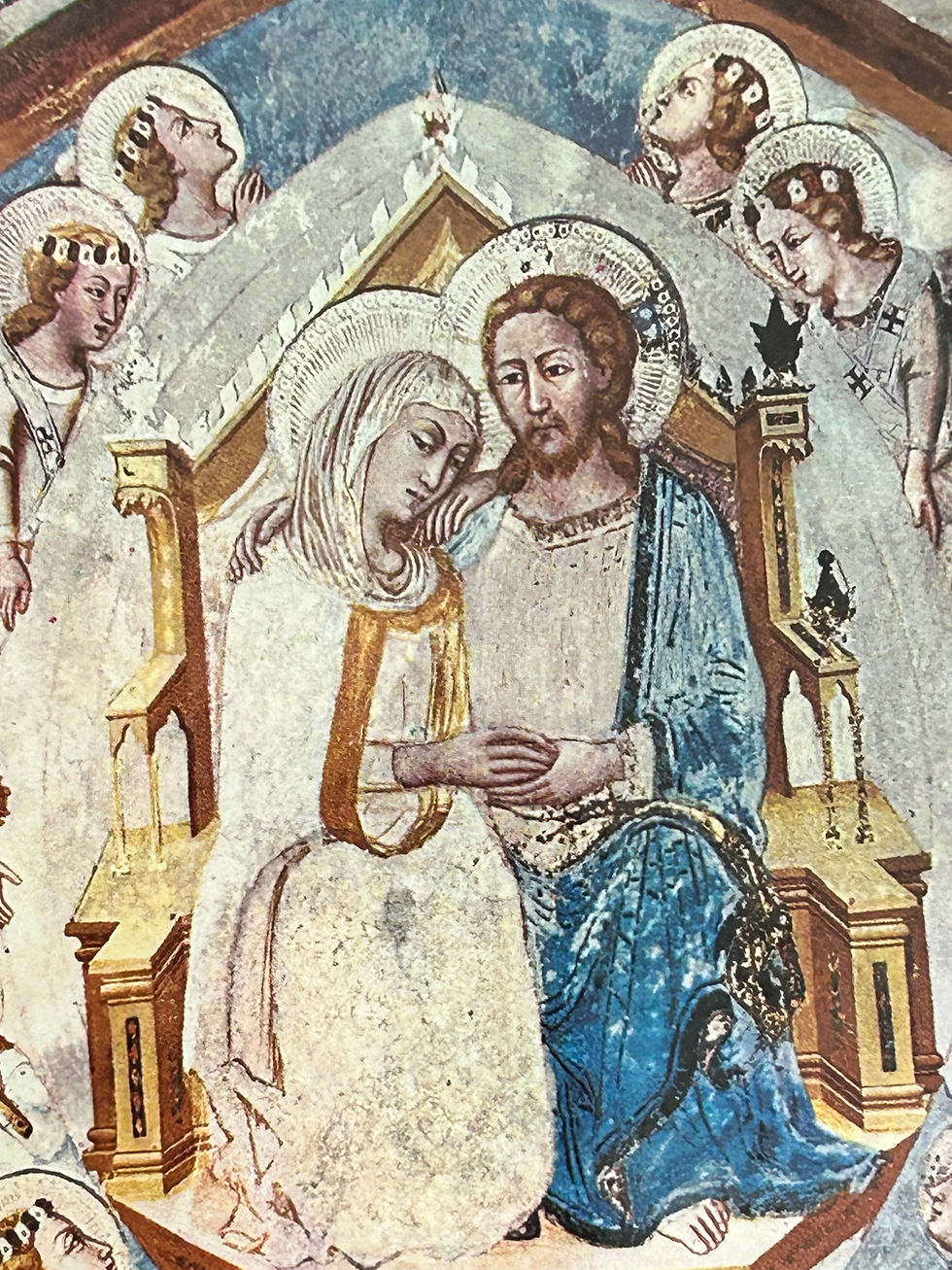Evening Call
- Dr. Anthony Lilles

- Sep 2, 2009
- 3 min read
The discipline of prayer includes sanctifying time, offering one's own time to God at various moments of the day, including the end of the day, the evening. Time is first of all a precious gift from God. Not a single moment is to be wasted. Time spent in prayer is never wasted. The sanctification of time is one of the effects and purposes of prayer. Most people look at prayer as principally a psychological and therapeutic exercise. They do not normally see prayer as something that actually changes time. But prayer is not simply psychological or therapeutic. It is interpersonal, in the Body of Christ for the glory of the Father and the salvation of the world. Because the prayer of Christ is always effective, Christian prayer is effective to the degree it is in union with Him and the desires of his heart. It is his desire that all things, including time itself, should be offered in thanksgiving to the Father for the salvation of the world. The reality is, Christians, as members of the Body of Christ, make time pregnant with grace whenever they pray. When we pray, this grace-filled time becomes part of our offering to the Father in Christ. One public way this offering is made is through the Liturgy of the Hours. Based on the ancient Jewish observance of praying seven times a day, the very first Christians offered psalms together at certain hours keeping vigil night and day. Some ancient authorities suggested that this was how to obey Jesus' command to pray always (Luke 18:1 and 1 Thes. 5:17). Today, priest and religious around the world continue this ancient practice. Morning and Evening prayer are strongly encouraged for the lay faithful. In November of 2006, I was invited to make a retreat with the monks at the Grande Chartruese. I had come to France to give a conference on Blessed Elisabeth of the Trinity and the Carthusians supported this effort by their generous and extraordinary hospitality. For those wanting to take up a life of prayer, making a personal retreat at a monastery can be a great help. There is something about the witness of men and women who have dedicated their lives to prayer that helps us make prayer more of a priority in our own lives. While many monasteries welcome pilgrims for this purpose, the Carthusians normally can not do so because of the discipline of solitude and anonymity that is part of their way of life. So to be able to be with them was an extraordinary grace, one that changed my life. The following poem is by one of my students, Tanya Swegler, after hearing my description of praying with the monks on that occasion. Evening Call Sunset glow, evening call Silent footsteps gently fall The Tabernacle waits in peace To give each heart divine release Moon rise high, evening praise Starlight shines with angel's gaze Sleep descends and earth at rest The setting of the spirit's quest Candle lit, evening light Love that burns without respite Exultation, deep desire To teouch the Everlasting Fire Darkness still, evening prayer Souls lay down the body's care Voices rise in unison Echoes of a night begun Ancient chant, evening song Resonates with voices strong Angel choirs respond in kind As heav'n and earth are intertwined Vigilance, evening gift Mount on wings of eagles swift To the feet of God's own throne Communing with Him there alone Sacrifice, evening joy Lives laaid down for God's employ A step beyond the grave's domain To live is Christ; to die is gain - Tanya Swegler, August 2009

Comments